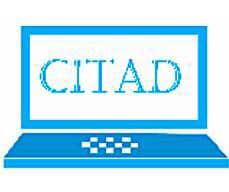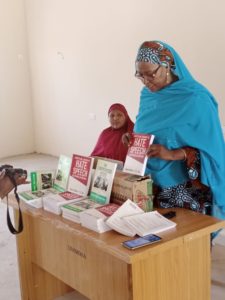PRESS STATEMENT ON THE REVIEW OF TELECOMMUNICATION LICENSING FRAMEWORKS BY NIGERIAN COMMUNICATIONS COMMISSION
The Telecommunication sector is highly dynamic such that its regulatory framework has to be equally dynamic, to respond to changes in technological development. It is in this connection that the Centre for Information Technology and Development (CITAD) welcomes the decision of the national telecommunication regulator, the Nigerian Communications Commission (NCC) to review its licensing processes and conditions. The last such review is nearly 20 years ago.Â
Since that review, a lot of major technological developments have occurred, making some of the provision obsolete and thrusting new issues that there hitherto not anticipate. Among the technological progress for instance, we have moved from 2G through 3G and now heading for the deployment of 5G. We are witnessing the update of artificial intelligence and internet of all things (IoT) both of which are major users of bandwidth.Â
Within the period, internet has moved from a fringe luxury of the rich to an indispensable tool for all. One of the lessons that the COVID lockdown has taught the world is that the future is increasing dependent on online interactions. This is why the United Nations has declared access to the internet a right that no one should be left behind.Â
Although Nigeria has made tremendous progress over the years, there are still many millions of people who are unconnected and are not using the internet. At the beginning of this year, only about 43% of Nigerians were using the internet. This means more than have of Nigeria are still unconnected, creating an unwanted digital divide in the country.
Cost and infrastructure of access rollout limitations are among the key factors for the persistence of the digital divide in the country. Of course, there are other peculiarities such as the relatively poorer access to the internet by women and people living with disabilities. Infrastructure of access rollout is conditioned by regulations and policy provisions as well las licensing conditions. To accelerate that and lower the cost of access and use and expand affordability for the many, the NCC is called upon to embrace innovative licensing frameworks that could catalyse speedy roll out with cost crushing down.Â
One of the innovative approach is the inclusion of community networks as a special category of licenses, available to communities and non-profits to rollout community level networks that could provide access to internet for communities and provide sites for technical experimentation. and promotion of digital literacy. This is being used successfully in many countries globally, including in Africa in such countries as Kenya, South Africa Malawi, etc.Â
We therefore call on the NCC to use the occasion of the review to mainstream community networks licenses within its licensing framework. We would also like to call on the regulator to review the Framework for the deployment of TV white space (TVWS) to enable its utilization for community networks.Â
We will however caution that this review should not engage with the issues of licensing and regulating of over the top (OTT) platforms which is being clamored for by some within government as part of the fallout of the misunderstanding between the Government and Twitter. We urge that should be left out of the healthy growth of the telecommunication sector which is necessary for bringing the digital divide and for the nurturing the digital economy in NigeriaÂ
YZ. Yaú, June 22, 2021
Executive DirectorÂ



